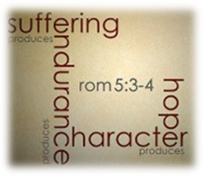“It Could Be Better” by Daryl Denham

15 And if it is evil in your eyes to serve the Lord, choose this day whom you will serve, whether the gods your fathers served in the region beyond the River, or the gods of the Amorites in whose land you dwell. But as for me and my house, we will serve the Lord.” Joshua 24:15
“Of course it could be better. That’s not the question, not really. The question is, “what are you going to do about it?” And, to follow up, “what effort are you willing to put in to make it better?” If you’re not willing to make it better, it’s probably going to stay the way it is. The changing of seasons is as good a time as any to say, “now, I’m going to make it better.” The key word isn’t ‘better’. The key words are now and I.” These are the words of Seth Godin, from his daily blog, and they ring true in every aspect of our lives; physical, mental, spiritual, work, or leisure.
In any given moment, there are thousands of things that we could do: go for a walk, exercise, call a friend, read a book, study, watch tv, listen to music, and on and on. So, we choose. Most of what we do is borne out of habit, and our habit is formed by countless choices in countless moments that came before. If we want things to be better our best path usually begins by acknowledging that we do, in fact, have a choice.
Joshua told the Israelites, in Joshua 24:15, to “choose this day whom you will serve… But as for me and my house, we will serve the Lord.” We first make the decision to start serving the Lord. But we refine the decision by every choice we make. “Line upon line, precept upon precept,” each choice we make draws us closer to, or further away, from the Lord. Where are your choices leading you?










